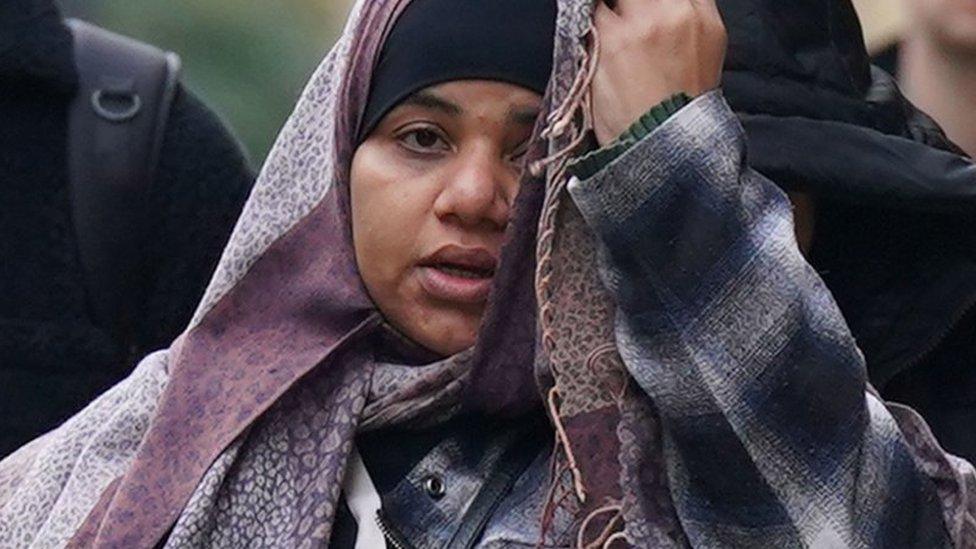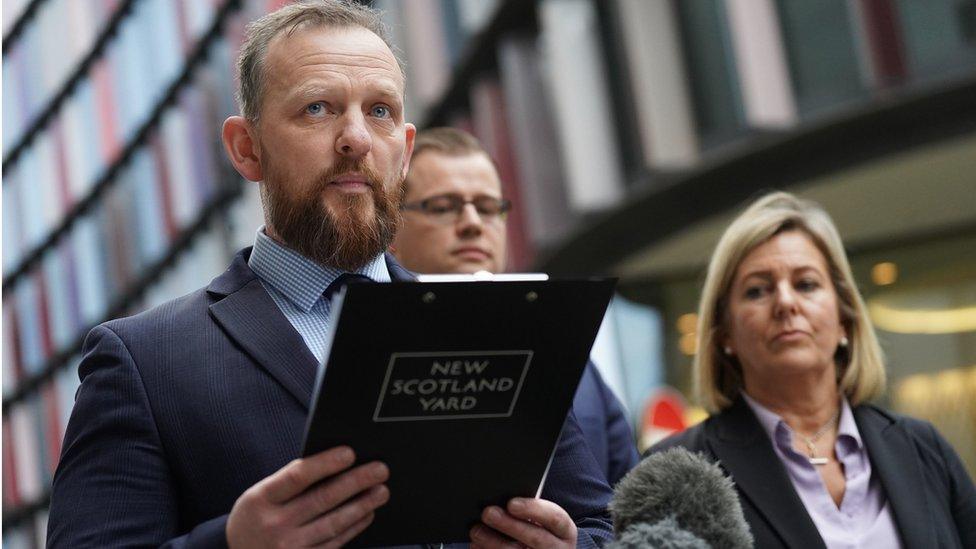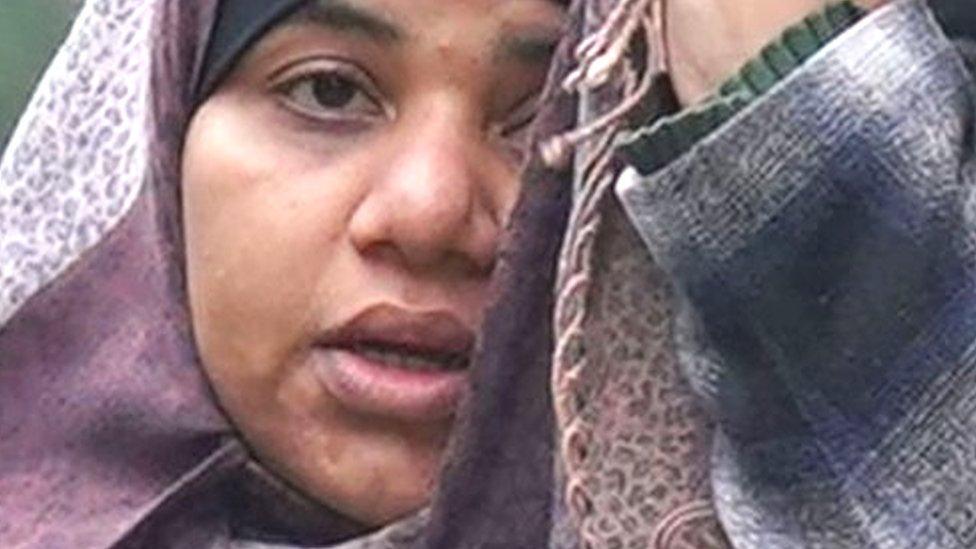FGM: Woman jailed for taking child to Kenya for mutilation
- Published

Amina Noor, 40, told the Old Bailey the mutilation is done for cultural reasons and was a procedure she herself had undergone as a child.
A woman has been jailed for taking a three-year-old British child to Kenya for female genital mutilation (FGM).
Amina Noor, 40, from Harrow, north-east London, travelled to Kenya in 2006 where she took the child to a private house for the procedure, the court heard.
At the Old Bailey, Noor was handed a sentence of seven years in prison.
She was the first person to be convicted of assisting a non-UK person to perform FGM.
Warning: This article contains details some may find distressing
She had told the Old Bailey the mutilation was done for cultural reasons and was a procedure she herself had undergone as a child.
During the sentencing earlier, Mr Justice Bryan said this "truly horrific and abhorrent crime" had left the victim's life "irrevocably altered".
He added that FGM was a practice that was very widespread in both Somalia and Kenya.
The judge praised the girl's "confidence to speak to a teacher" and come forward and said he hoped her "courage will inspire other women to do the same".
The defence told the Old Bailey on Friday that Noor "was influenced at the time in the belief that she was doing what was necessary to be accepted by her culture".
Prosecutor Deanna Heer KC acknowledged the "cultural pressure" in place, but said that Noor "failed to intervene to protect" the girl.
The victim read out a statement in court, which said that she had been affected by the case being in the "public domain", reflecting how uncomfortable she felt by "strangers discussing [her] body" publicly.
Girl 'cried in pain all night'
The victim, who is now aged 21, cannot be identified for legal reasons.
During the trial, the court heard that Noor had taken the girl to a 'clinic' via tuk-tuk where she was asked to wait outside a private house as the child was mutilated.
The court heard the girl "suffered a wound" and following the procedure "cried in pain all night".
When Noor was questioned by police, she denied that anyone had made threats against her to force her to agree to FGM.
However, Noor claimed she feared being "cursed" and "disowned" from her community if she failed to hand over the three-year-old.
During the trial, Noor said she "felt pain" over the threat, saying: "That was a pressure I had no power to do anything about."
Noor described what had been done to the girl as "Sunnah" - meaning "tradition" or "way" in Arabic - and added it was a practice that had gone on for cultural reasons for a long time.
Her crime only came to light years later in November 2018 when the victim, then 16, confided in her English teacher at school.
After the victim told her teacher what had happened to her when she was an infant, she was taken to a hospital where she was examined.
Following an examination at University College hospital in 2019, it was found that her clitoris had been completely removed, the court heard.
'Real deterrent'
Jurors previously heard how Noor was born in Somalia and moved to Kenya at the age of eight during the civil war in her home country.
She was 16 when she came to the UK and was later granted British citizenship.

Det Sup Andy Furphy said the police wanted to build trust with people affected by FGM so they could help protect them
Det Supt Andy Furphy, whose team led the investigation, said: "We know FGM can be a taboo subject, which is rarely discussed within families and communities - we must build trust with those impacted so we can protect victims.
"It's not our job to judge and we will always remain sensitive and respectful.
"I hope today's sentence acts as a real deterrent to those who choose to harm children in this way.
"Most importantly, I hope that we can use this result as an opportunity to continue to raise awareness of this topic, ensuring victims know that there is support and help out there."
Faty Kane, girls' rights senior advisor at ActionAid UK, welcomed the sentence.
"It's distressing to hear of any young girl going through this act of violence, let alone a three-year-old girl," she said.
She added that "punishments alone won't work" to end FGM and work must be done on the ground in communities.
It is illegal to perform the practice in the UK or take abroad a British national or permanent resident for FGM, or to help anyone trying to do this.
Victims of FGM are also granted anonymity once an allegation is reported to police, whatever the outcome is of the investigation or prosecution.
Figures held by the United Nations suggest that 94% of females of Somali origin living in Kenya undergo FGM.
To date, the only other successful prosecution for FGM was in 2019 when a Ugandan woman from Walthamstow, east London, was sentenced to 11 years in prison for mutilating a three-year-old girl.

Listen to the best of BBC Radio London on Sounds and follow BBC London on Facebook, external, X, external and Instagram, external. Send your story ideas to hello.bbclondon@bbc.co.uk, external
Related topics
- Published26 October 2023

- Published20 October 2023

- Published18 October 2023
